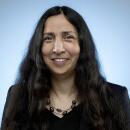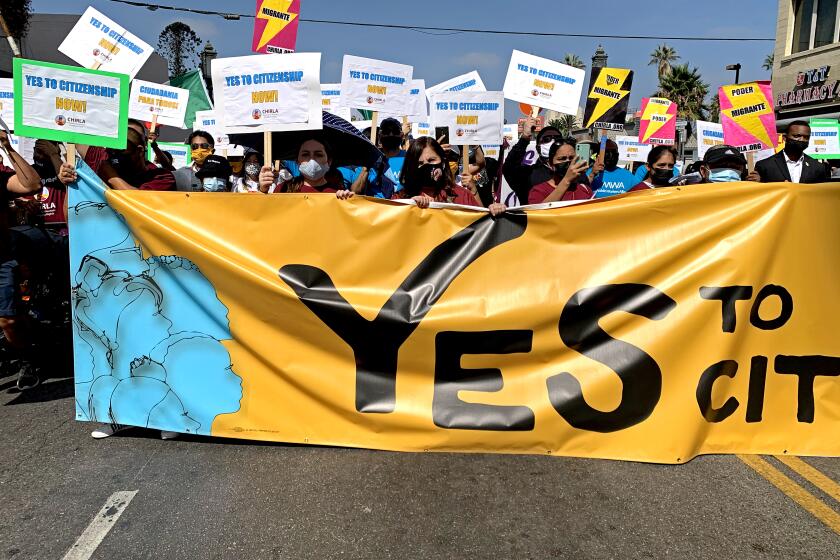Always Radical KPFK to Air 30-Year History
- Share via
In 1959 free, public radio-- without commercials--was a radical idea. Thirty years later, non-commercial radio has found large listening audiences and mainstream respectability, but the public station that first broadcast over Los Angeles airwaves in July, 1959, is still considered by many to be radical radio.
Those who associate KPFK solely with the politics of the left might be surprised to discover that in its early days, KPFK was as likely to give air time to conservatives William Buckley and Howard Jarvis as to Dorothy Healy, head of the Communist Party in Southern California. It was also opposed to rock and folk music. Classical music filled the time between discussions of foreign policy and local politics.
“The Sounds and the Fury,” a radio documentary that airs at midnight Monday on KPFK (90.7 FM), reveals those early voices and more in an exploration of the history of the North Hollywood-based station. What emerges is a picture of often-conflicting words that portrays KPFK less as a bastion of liberalism than a station that, throughout its existence, has been committed to freedom of expression.
According to observers and past and present staff members, this commitment to free speech-- spoken mostly by a diverse assortment of unpaid volunteers-- has been the strength and weakness of KPFK.
“We were defining non-commercial KPFK at the very moment it was being broadcast,” the voice of former staffer Mitchell Harding explains during the documentary. “That’s still going on, and that may be why it seemed to sound somewhat the same throughout the years. It does have a KPFK . . . sound . . . not so much non-professionalism as enthusiasm. People coming in because they felt as though it were a movement. And that has pitfalls, but it’s also the reason the station renews itself.”
The well-publicized pitfalls of KPFK’s free radio movement have involved external and internal politics. During the McCarthy era, the station was investigated by the Senate internal security subcommittee. In the ‘60s, the station was criticized for the opinions of some of its announcers who opposed the Vietnam War. In the ‘70s, the Los Angeles Police Department searched the station after the news director aired a tape of Patricia Hearst (a.k.a. Tanya) declaring her loyalty to the Symbionese Liberation Army.
Recently, the station’s license was threatened when the Federal Communications Commission objected to a sexually frank radio play about AIDS that was found to be obscene.
More crippling have been the bickering and staff firings that were often aired publicly through the media. Listeners occasionally heard shouting matches and, more often, discussions and rebuttals to discussions on internal policy decisions. Some of these arguments are heard in the documentary.
“We were very proud of being able to portray the station’s internal conflicts without seeming to simply air dirty laundry,” Program Director Lucia Chappelle said during a break from mixing the final version of the documentary.
She also co-produced the original documentary history of the station 10 years ago, “KPFK: The First Two Decades,” with Mike Hodel, who died in 1986. The new version will use much of the first documentary with updates of the events and struggles of the last decade.
“It’s done in kind of a dreamlike fashion,” Chappelle said. “‘Some people aren’t even identified, but you can glean their impact by what they say.”
One such unidentified person describes the station this way: “The air is full of voices these days, and full of sound and fury . . . you can hear almost anything.”
“The Sounds and the Fury” airs Monday at midnight on KPFK.
More to Read
Sign up for Essential California
The most important California stories and recommendations in your inbox every morning.
You may occasionally receive promotional content from the Los Angeles Times.














